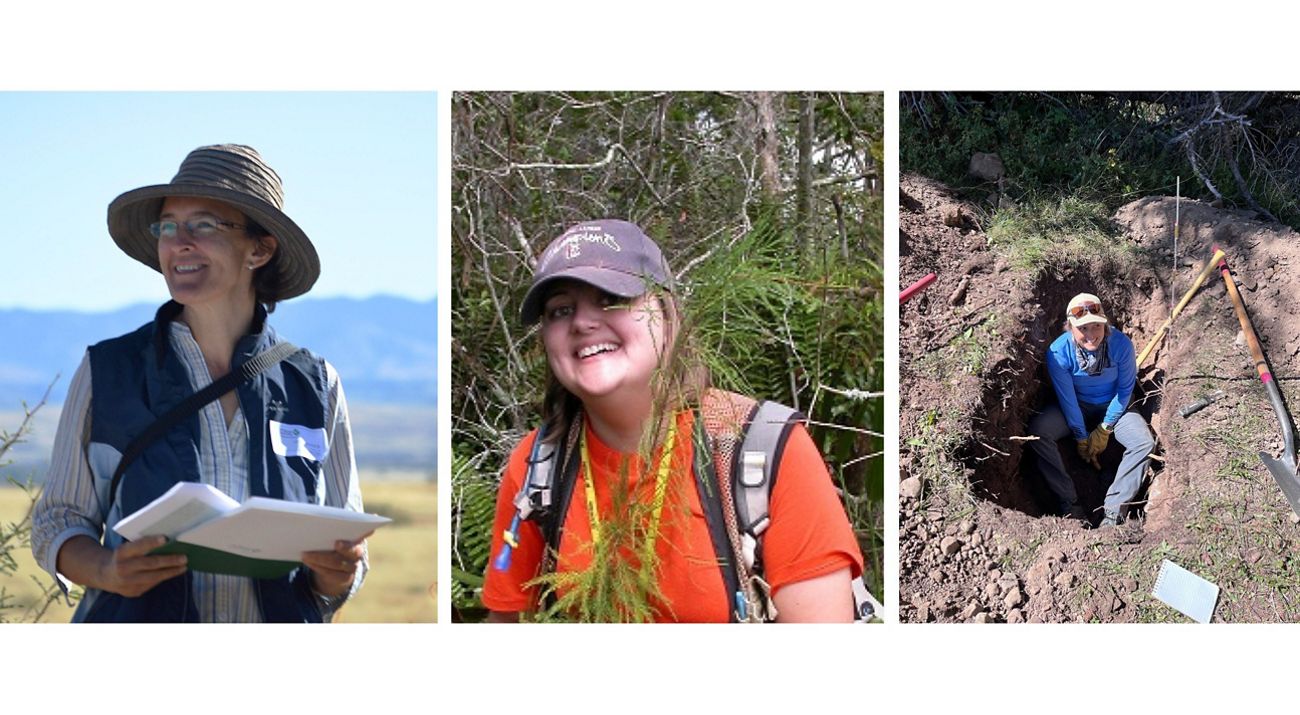We are proud of the contributions that our female scientists make to our organization and their impact on our lofty conservation goals. Meet Gita, Lisa and Jessie—three amazing scientists who share their inspirations, passions and advice for women interested in joining the field of science.
Gita Bodner, Conservation Ecologist
Years at TNC: 18
Why did you want to become a scientist? Was there a woman, either in your life or in history, who inspired you? On my mom’s side, I come from a long line of outdoors people, who felt a deep kinship with the natural world. Some were scientists, some were gardeners and farmers. Being raised with my mom’s curiosity and empathy, every day brings a chance to observe and connect. Now when I watch some cool critter doing interesting things, I also feel like I’m seeing through my mom’s eyes.
What is the coolest part of your job? The coolest part of my job is getting to spend time out with people who see the world differently than I do, with the archaeologists and geologists, hydrologists and botanists, ranchers and writers…
What advice would you give to women and girls who are interested in entering this field? This is both an important and a challenging time to work in conservation. Take time to enjoy the natural world around you and use the energy you get from that to fuel the hard work that you see needs doing.
Lisa McCauley, Spatial Scientist
Years at TNC: 8
Why did you want to become a scientist? Was there a woman, either in your life or in history, who inspired you? I drove my parents crazy as a kid, always asking questions about how everything worked and why things were the way they were. So, becoming a scientist was a natural for me. My grandma was my inspiration and taught me about nature as a child, and I got my love of plants and animals from her. She loved all animals and even kept a hollowed-out log in her backyard for years because the slugs liked the habitat. She always wished she would have gone to school to be a botanist, and I got to go to school to become a biologist.
What is the coolest part of your job? I get to take a bunch of data and numbers and analyze them and synthesize them down to a map or a graph or a few sentences that help us understand our ecosystems better and find the best ways that we can conserve them.
What advice would you give to women and girls who are interested in entering this field? Come join us; science is fun! Don’t let anyone discourage you or make you think that science isn’t for girls. My experience was that most of my classmates in graduate school were other women, and here at TNC more than half of our science staff are women.
Jessie Pearl, Freshwater Scientist
Years at TNC: 2
Why did you want to become a scientist? Was there a woman, either in your life or in history, who inspired you? I loved that the outdoors could be my office, and I could be a detective in answering critical questions regarding climate and hazards. I am inspired every day by the other women around me who are persevering through bigotry, systemic sexism and setbacks to discover more about our planet and how to heal it.
What is the coolest part of your job? Getting out in the field and seeing some of the most incredible places on earth when collecting data.
What advice would you give to women and girls who are interested in entering this field? Find mentors and colleagues who uplift your work—and don’t be afraid to get a bit muddy.
To learn about the entire AZ Conservation Science team, visit azconservation.org/our_team.
The Nature Conservancy is a global conservation organization dedicated to conserving the lands and waters on which all life depends. Guided by science, we create innovative, on-the-ground solutions to our world’s toughest challenges so that nature and people can thrive together. We are tackling climate change, conserving lands, waters and oceans at an unprecedented scale, providing food and water sustainably and helping make cities more resilient. The Nature Conservancy is working to make a lasting difference around the world in 81 countries and territories (40 by direct conservation impact and 41 through partners) through a collaborative approach that engages local communities, governments, the private sector, and other partners. To learn more, visit nature.org or follow @nature_press on X.
